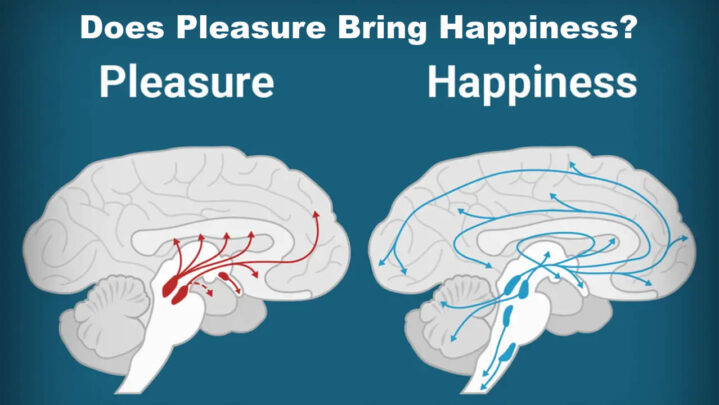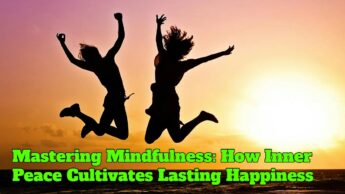Happiness and pleasure have similarities but are two different ideas. Pleasure may not always imply endless happiness but may provide momentary satisfaction and delight. Happiness, which extends beyond fleeting pleasures, is a more robust and pervasive sense of well-being. External factors like material belongings, sensory experiences, or engaging in festive activities like savouring delectable cuisine or enjoying leisure activities are frequently the origins of pleasure.
The short-term pleasure and benefits to one’s general well-being that these experiences might provide are genuine. For instance, a person could feel happy after taking a vacation, purchasing a new device, or indulging in their favorite delicacy. But the thrill or pleasure that initially accompanies these delights often wears off after a while.
Happiness is a more profound and long-lasting sense of well-being that is not simply dependent on outside factors. Happiness is a sense of fulfilment, contentment, and pleasure in life. It is frequently linked to having a sense of purpose, enduring connections, developing personally, and adopting an optimistic view of life.
Happiness is a condition that comes from the inside and may be fostered via many practices, such as developing gratitude, practising mindfulness, and performing deeds of kindness. Unlike pleasure, which is sometimes fleeting and depends on outside circumstances, happiness is an internal state that comes from within.
While enjoyment and satisfaction can be experienced momentarily, sustained happiness entails a more profound sense of well-being and fulfilment. Therefore, it is crucial to develop a comprehensive view of well-being that considers numerous facets of life beyond simple pleasures and aims to promote long-lasting enjoyment.





